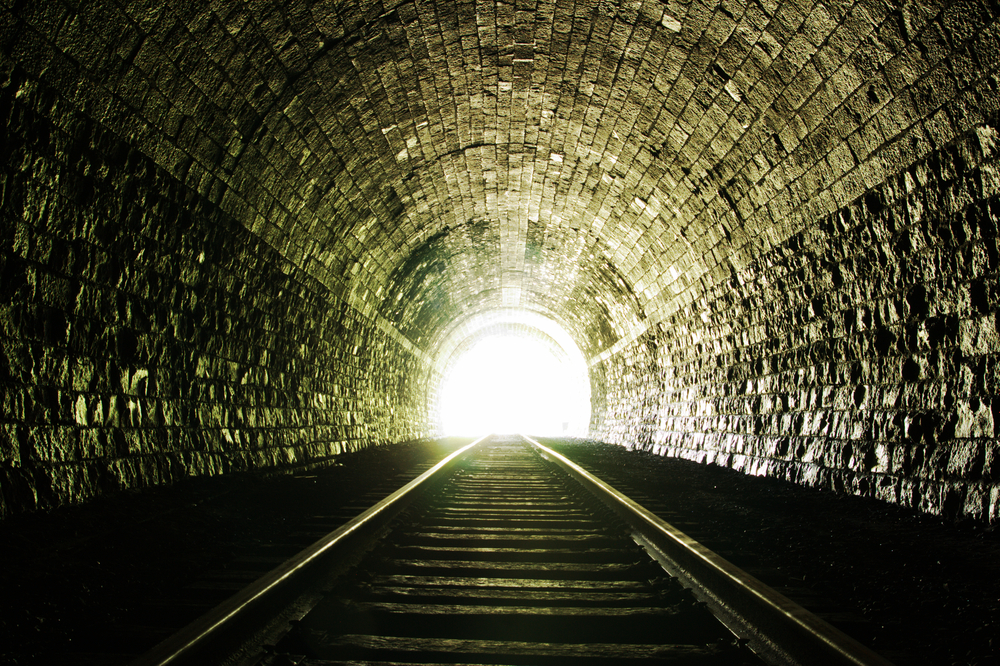How do you make new friends as an adult? Can a psychic masseuse fix your back AND your life? Read the rest of the VICE Guide to Self-Improvement here .
One evening in 1994, when Myra* was a teenager and at home folding laundry, she began to feel rotten. As she grabbed her father to let him know she needed to see a doctor, she collapsed. An ambulance arrived shortly afterwards, but by the time Myra arrived at the hospital she had suffered three cardiac arrests.
“It’s very hard to explain what happened to me during that time, because it was like a dream, a beautiful dream that I had never dreamt before,” she recounts today. “It was as if I had no sense of self, that I was everything… It was a very reassuring feeling and I felt safe and protected. I felt unconditional love, joy, and profound peacefulness.”
Myra’s description echoes thousands of similar accounts of feelings of bliss, love and serenity from those who have come back from the brink during so-called “near death experiences” (NDEs). Likewise, her perception that the event had a positive impact on her personal values and goals is typical among NDE-ers. “Over the course of the next few weeks it came to me that I was here on a mission,” she explains.
With further reflection and discussion with members of the International Association for Near Death Studies in Seattle, Myra realised this mission was to “come back and love, to help people not fear death.”
Videos by VICE

These warm-and-fuzzy feelings of goodwill, so often reported after NDEs, have been reproduced in academic research around the world. Studies in Europe, Asia, and North America all note an increased levels of happiness and altruism among NDE-ers, alongside decreases in materialism and fear of death.
So what is this ecstatic NDE, and where can I get one, you say? The term “near death experience” was coined to describe the similar experience reported by patients who had suffered cardiac arrests, apparently travelling out of their bodies and “coming back” to life. Research has since confirmed that such experiences extend beyond cardiac arrests to cases of surgery, road accidents, near-drowning, illness, and other traumatic injuries.
There are a range of common characteristics associated with an NDE—a feeling of floating out of the body, entering a tunnel, a bright light, intense colours or music and meeting other people or beings. Another powerful feature is a sense of being unconditionally loved and at peace. This overwhelming feeling of love for one’s self and others appears in personal anecdotes collected globally in academic studies, medical reports and dedicated projects like the NDE Research Foundation (NDERF).
Around 80 percent of NDEers report that the experience permanently altered their “real” lives too. The feelings of peace, love and acceptance seemed to affect relationships with others after the event. A recent survey of hundreds of NEDers found that more than 75 percent ranked themselves as “greatly compassionate toward others” after the experience, compared with less than 25 percent beforehand.
NDERF founder and medical doctor, Dr. Jeffrey Long, attributes these changes to personal rather than biological factors.
“Both prospective and retrospective studies have shown an increase in altruism, decreased materialistic values, and an increased interest in spiritual matters,” he says. “I believe that these changes occur as a direct result of what they learned during their NDE. A reduction or elimination of the fear of death may allow a person to live their life more positively.”
Of course, the flow-on effects of NDEs are not always rosy. In many instances, the experience can be violent and traumatic—even hellish. Or the resulting personal and psychological changes can result in relationship breakdowns or feelings of alienation. Yet the consensus is that overwhelmingly, both adult and child NDEers return with a renewed zest for life and a more positive outlook.
Better still—it seems we don’t all have to experience an NDE to benefit from one. Research indicates that the transformative effects of NDEs can go beyond individuals to have positive outcomes at community and social levels. As has been documented, NDEs have resulted in healthier interpersonal relationships, philanthropic or social initiatives, and even more eco-friendly behaviour on the part of NDEers.
“They commonly learn about the value of love during their NDEs,” Dr. Long notes. “This could significantly affect their values.”
*Not her real name




